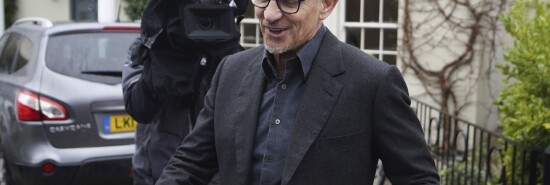
Why the BBC’s star soccer presenter was just suspended over political comments
Tom Rogan
Video Embed
Gary Lineker is the face of English soccer coverage. For a nation as obsessed with soccer as England is, he’s a demigod-like figure.
When it comes to any major soccer tournament, Lineker is the BBC host who leads the discussion. He also headlines the BBC’s Saturday soccer highlights show Match of the Day. That show is the centerpiece of English sports coverage each week, being that most games are, absurdly, not aired on live television.
IRAN AND SAUDI ARABIA’S AGREEMENT IS LIPSTICK ON A PIG
On Friday, however, Lineker was suspended from the BBC roster. This followed comments Lineker made earlier this week in which he compared a new government policy on immigration as a Nazi-lite and “immeasurably cruel policy directed at the most vulnerable people in language that is not dissimilar to that used by Germany in the ’30s.” The new policy will prevent those who illegally enter the U.K. from being eligible to apply for asylum.
A publicly-funded broadcaster, the BBC has strict rules on political impartiality. Lineker has previously made politically-loaded comments, but his comparison of Rishi Sunak’s government to Nazis was clearly seen by BBC executives to have crossed a line. In a statement, the BBC said that his words had been a “breach of our guidelines,” adding that Lineker should “keep well away from taking sides on party political issues or political controversies.”
The former star striker will be suspended from BBC coverage if and until the organization can agree on a new social media policy. His fellow star presenters Ian Wright and Alan Shearer have said they will boycott the BBC in solidarity with their former colleague.
Still, the BBC’s major concern here is not that Lineker is upsetting the government. His thoughts resemble fire-from-the-hip tweets more than detailed political analysis. Take Lineker’s declaration last December, for example, that the United States is “extraordinarily racist.” It’s a fatuous comment. After all, Europe is far more racist, albeit more quietly, than the U.S. Just look at the comparative minority representation in the senior levels of government, military, and business in Europe versus the U.S.
Rather, the central issue facing the BBC is that it cannot allow Lineker to speak freely but then ban others for doing the same. What the media outlet truly fears is the broader politicization of its talent base and the corrosion of its relative impartiality. This is about self-preservation as much as anything else. The BBC is funded by a tax that requires every television-owning household to pay $191 a year into the BBC’s coffers. The British government has said that the fee will be abolished by 2027, but the BBC hopes that it might be able to salvage this huge multi-billion dollar revenue generator.
Top line: Lineker will probably return to air. But even if he doesn’t, the BBC will believe it had to draw a line in the political sand.
